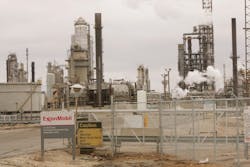This article originally appeared on July 10, 2019.
Automation World has been following the developments of the Open Process Automation Forum (OPAF) since the group formed in 2017 in response to a request—or rather a demand—from ExxonMobil that industrial control system suppliers work toward an open architecture that is modular, interoperable, scalable, and secure. Within a year, the group (which now has more than 130 members) unveiled the first deliverable, which was the publication of the Open Process Automation Business Guide, a document that outlines the value proposition for the development of an OPAF standard.
Earlier this year, OPAF released the preliminary version of the open process automation standard (O-PAS) v. 1.0. O-PAS. It meets the minimum standard and specification requirements for federated process automation systems, using an open and interoperable reference architecture. (For a summary of the technical components that make up O-PAS, read: Open Process Automation Forum Releases Standard.)
The focus of O-PAS v. 1.0 is on interoperability, and, to test that out, the group recently conducted a “plugfest,” inviting member companies to weed out the weak spots and then build out the spec some more based on what they had learned.
Before any of this, however, ExxonMobil had been conducting its own proof-of -concept. “We were told some things were impossible and hard to do, so we decided to test it ourselves,” said David DeBari, a process control engineer at ExxonMobil, during a presentation at the ARC Industry Forum earlier this year. “We were interested in interoperability because integration is expensive.”
For the proof-of-concept, ExxonMobil worked with Lockheed Martin to develop a base design and established a systems integration laboratory that included 10 suppliers (ABB, ANSYS, AspenTech, Inductive Automation, Intel, nxtControls, R Stahl, RTI, Schneider Electric and WindRiver) to provide subsystems, hardware, and software components that are integrated.
For the next step, the test bed, ExxonMobil was looking for system integrators and more collaboration partners with whom to go to field trials, DeBari said. And they’ve found at least one new partner.
This week, ExxonMobil announced it selected Yokogawa Electric Corporation to be the Open Process Automation (OPA) system integrator responsible for establishing the company’s OPA Test Bed. Development work and experiments conducted will support ExxonMobil’s effort to move towards a standards-based, open, secure and interoperable process control architecture, using the test bed to evaluate candidate components and standards and provide the basis for moving OPA technology into initial industrial field trials.
Yokogawa offers main automation and information contractor (MAIC) services that deliver a full scope of project execution capabilities enabling the company to assume responsibility for all automation-related aspects of a project. For this specific test bed project,Yokogawa’s development office will be located near ExxonMobil’s Houston Campus in Spring, Texas, and is expected to be operational later this year.
According to ExxonMobil, the test bed will leverage the existing OPA development work and technological expertise of Yokogawa’s US Technology Center. And, ExxonMobil intends to share the results of systems tests with other collaboration partners and OPAF. ExxonMobil will also encourage its collaboration partners to utilize the test bed to evaluate additional components that will be used in their independent field trials.
“This is an important milestone in the use of OPAF’s standards to create an industrial control system,” said Brad Houk, project manager for ExxonMobil Research and Engineering Company. “ExxonMobil’s key criteria for system integrator selection included a demonstrated understanding of the technical requirements to create an OPA system from heterogeneous components and the ability to function as an agnostic broker of components from all suppliers.”
Leaders relevant to this article:

